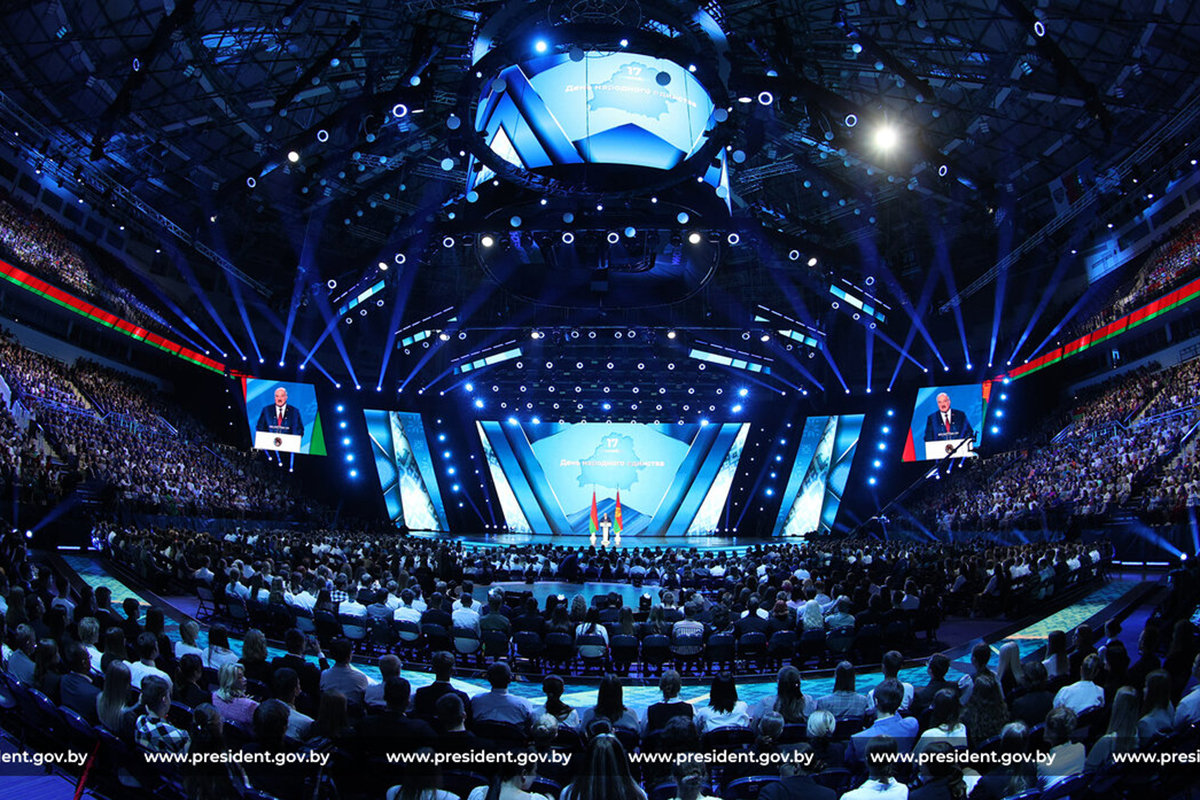Lukashenko: National Unity Day important for all those who feel themselves Belarusians with their hearts and souls
On the evening of September 17th, President of Belarus Aleksandr Lukashenko took part in a solemn event dedicated to National Unity Day. The bright and large-scale patriotic forum – If We Are United – gathered participants from all regions of the country at the Minsk-Arena. Speaking about the significance of this holiday, Aleksandr Lukashenko noted that it symbolises the inextricable link between generations, the strength of the spirit of the Belarusian people and their tireless desire to live in their state on their native land.
“It is especially important for all those who – not only by the fact of their birth – but feel themselves Belarusians with their hearts and souls,” the Head of State stressed. Eighty-five years ago, a fateful event took place, and the proud statement that ‘we are Belarusians’ sounded all over the world from the very centre of Europe. It was the voice of the people who became one nation – forever!”
The President noted that, for a long time, the modest territory of Belarusians at the crossroads of civilisations constantly became a firing ground for foreign wars and a place for the power players to fight against each other. “Our houses were burned, our property was robbed. Lands were divided by principalities, voivodeships and provinces, people — by language, faith and ideological beliefs. Our ancestors looked into the eyes of death more than once, but each time they rose from their knees unconquered, wiping sweat and tears – and moving forward. This is relevant in our modern times as well,” he said.
According to Aleksandr Lukashenko, the road to gaining their own statehood opened for Belarusians at the beginning of the 20th century, “The previous interethnic disputes ended, territorial claims were abandoned, and the Belarusian national state was created on January 1st, 1919. We had a historic chance to build our own home, live, work and raise children in peace and harmony, and become full masters of our own destiny. That was a chance, and that was the year 1919. However, the severe consequences of WWI, the Civil War that was gaining momentum, and the intervention of the coalition of Western countries did not allow our compatriots' dreams of a peaceful and happy life to come true then. This is topical today.”
The President noted that the voice of the newly created Belarusian Soviet republic was barely audible against that background, “This was perhaps due to the fact that there was no unity within it. However, there were those who thought only about personal gain, about their own – rather than people’s – interests. Representative of different minorities eagerly appointed themselves ‘authorities’, and everyone – who was striving to govern the new state – was hiding behind the name of the Belarusian people. In turn, the people – poor and hungry, illiterate and poorly clothed, exhausted by war and devastation – thought of how to survive. Perhaps if we had strong power and consent in the early 20th century, we would have stood ground. We would have then had no tragedy of the Riga Treaty, according to which 4.5 million sons and daughters of Belarus suddenly became strangers to each other in their native land.”




